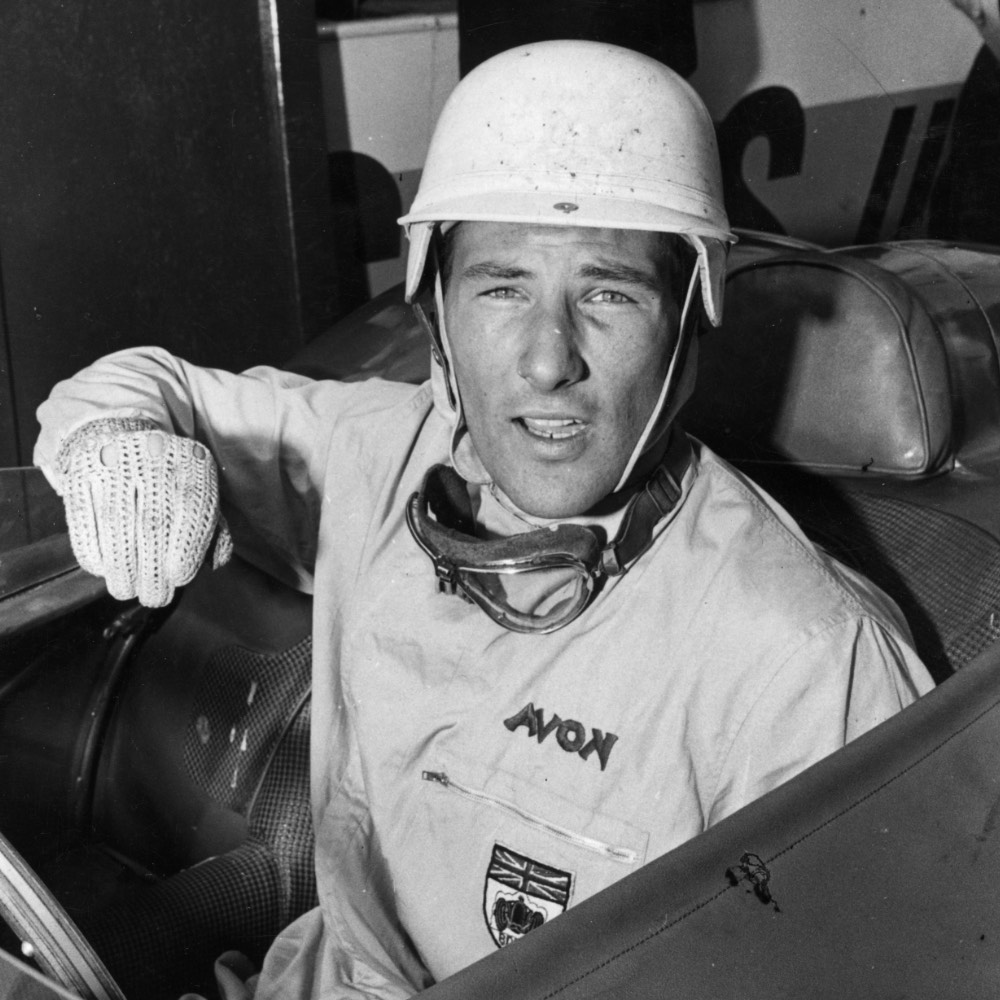
Stirling Moss
Career Statistics
Biography
Sir Stirling Craufurd Moss OBE (17 September 1929 - 12 April 2020) was a British racing driver who competed in Formula One from 1951 to 1961, universally regarded as the greatest driver never to win the World Drivers' Championship—a distinction earned through 16 Grand Prix victories, four consecutive runner-up championship finishes (1955-1958), and a record 212 official race wins across all forms of motorsport that demonstrated versatility, speed, and racecraft unmatched by his contemporaries, while his gentlemanly sportsmanship, most famously defending rival Mike Hawthorn from disqualification in 1958 despite costing himself the championship, exemplified an era when honor mattered more than titles.
Born in London to parents who were both accomplished racing drivers (his father Alfred competed in the Indianapolis 500), Moss grew up in a motorsport family and began competing in trials and hill climbs as a teenager. His early career was meteoric—he dominated British Formula Three and sports car racing before making his Formula One debut at the 1951 Swiss Grand Prix driving an HWM, beginning an 11-season Grand Prix career that would see him compete for HWM, ERA, Maserati, Mercedes, Vanwall, Cooper, and Rob Walker Racing. Moss's breakthrough came when Mercedes-Benz signed him for their 1955 Formula One campaign, partnering him with the legendary Juan Manuel Fangio—already a four-time World Champion and widely considered the greatest driver of his generation.
In the dominant Mercedes W196, Moss won his maiden Grand Prix at the British Grand Prix at Aintree before his home crowd, followed by victory at the Italian Grand Prix at Monza, establishing himself as Fangio's equal in terms of speed. He finished runner-up in the 1955 championship to Fangio, the first of four consecutive second-place finishes that would define his championship career. When Mercedes withdrew from motorsport at the end of 1955, Moss faced a dilemma—join Ferrari, the dominant team, or support the British racing effort with less competitive machinery. Choosing patriotism over pragmatism, Moss signed with Vanwall for 1956-1957, helping the British team develop into race winners while sacrificing his championship chances.
He won four races for Vanwall in 1957 but finished runner-up to Fangio's Maserati, watching the Argentine claim his fifth and final championship. The 1958 season brought Moss's closest championship opportunity and his most famous act of sportsmanship. Driving a mix of Vanwall (four wins) and Rob Walker Cooper entries, Moss won four races to Mike Hawthorn's single victory, yet arrived at the season finale in Morocco tied on points due to the era's championship points system that counted only a driver's best results. The decisive moment had come earlier at the Portuguese Grand Prix, where Hawthorn was threatened with disqualification for reversing on track after spinning.
Moss, despite being Hawthorn's title rival, testified on his behalf to race stewards, explaining that Hawthorn had not technically broken the rules. Moss's sportsmanship saved Hawthorn from disqualification, and ultimately cost Moss the championship—Hawthorn finished runner-up in Morocco to claim the title by a single point, becoming the first driver to win the World Championship with just one victory. Moss's decision to defend his rival rather than accept an unsportsmanlike championship exemplified the gentlemanly values of 1950s motorsport and cemented his reputation for integrity that transcended mere statistics. From 1959 to 1961, Moss competed primarily for Rob Walker's privateer team in Coopers and Lotuses, taking multiple victories in each season and finishing third in the championship three consecutive years.
His victories during this period included masterful drives in Monaco (1960, 1961), where his ability to master street circuits earned him the title "Mr. Monaco" before Graham Hill claimed it, and the 1961 German Grand Prix at the Nürburgring, where he drove a four-cylinder Lotus to defeat the superior V6-powered Ferraris of Phil Hill and Wolfgang von Trips through sheer skill and racecraft in one of Formula One's most celebrated giant-killing performances. Moss's versatility extended far beyond Formula One. In sports car racing, he won the 12 Hours of Sebring in 1954 and, most famously, the 1955 Mille Miglia with Mercedes, completing the 1,000-mile Italian road race in a record time of 10 hours, 7 minutes, 48 seconds at an average speed of 98.
53 mph—a performance many consider the greatest single drive in motorsport history. His co-driver Denis Jenkinson read pace notes from a scroll, pioneering the co-driver system later adopted in rallying, as Moss blasted the Mercedes 300 SLR through Italian villages and mountain passes at speeds that defied belief. On 23 April 1962, Moss's racing career ended in a near-fatal accident during the Glover Trophy non-championship race at Goodwood. His Lotus left the track at high speed and crashed into an earthen bank, leaving Moss in a coma for a month and partially paralyzed.
After extensive rehabilitation, he made a partial recovery but announced his retirement from professional racing in 1963, recognizing that his ultimate pace had been affected by the injuries. Over his Formula One career, Moss won 16 Grands Prix from 66 starts, achieved 16 pole positions, 19 fastest laps, and 24 podium finishes—the most wins by any driver never to claim the World Championship, a record that still stands. His 212 official victories across all forms of motorsport remain unmatched for versatility and longevity. After retirement, Moss became a successful property developer, remained active in historic motorsport until age 81, and served as a motorsport ambassador and commentator.
He was knighted in the 2000 New Year Honours for services to motor racing. Sir Stirling Moss died on 12 April 2020 at age 90 after a long illness, prompting worldwide tributes from the motorsport community. His legacy as the greatest driver never to win the World Championship endures not as a criticism but as recognition that championships don't always reflect true greatness—Moss's sportsmanship, versatility across all forms of racing, and supreme natural talent established him as one of history's finest drivers, regardless of titles.